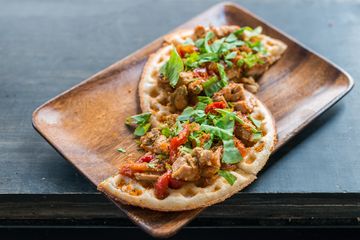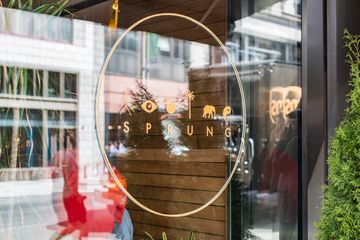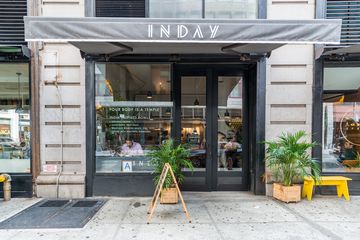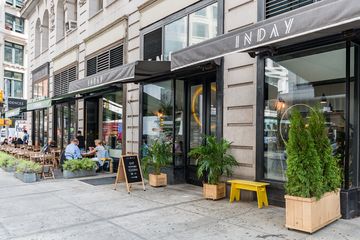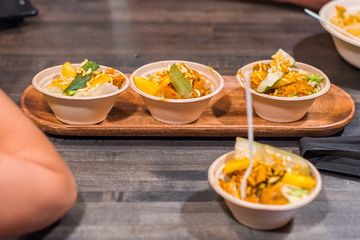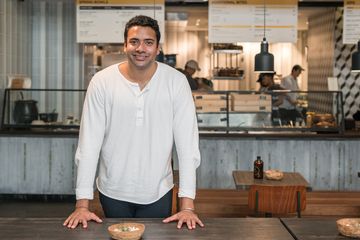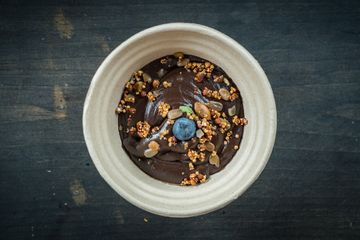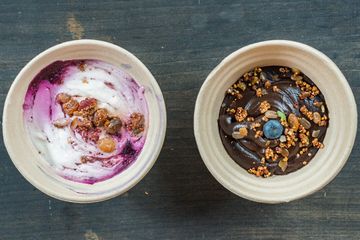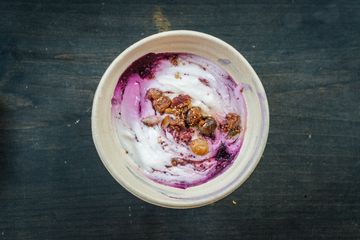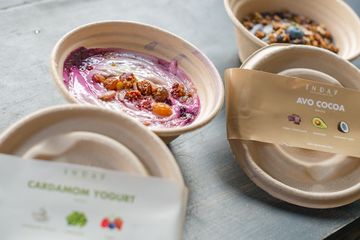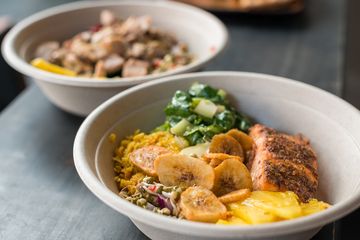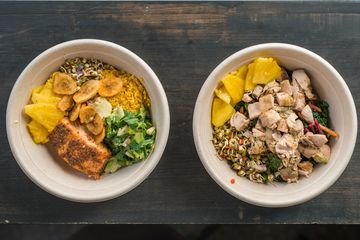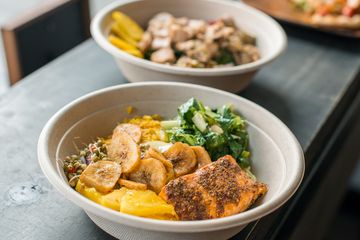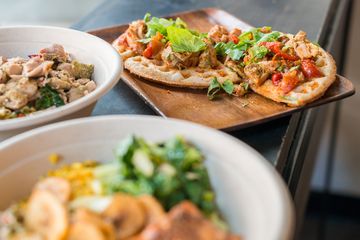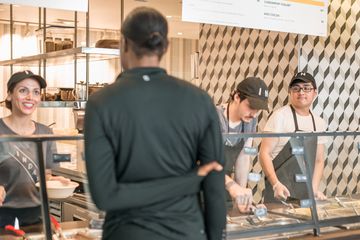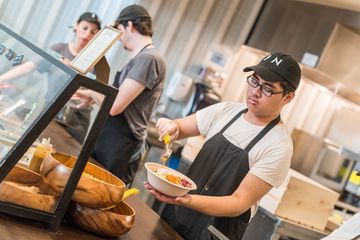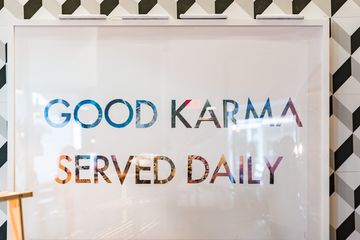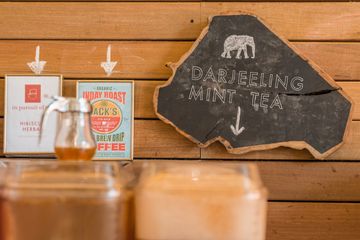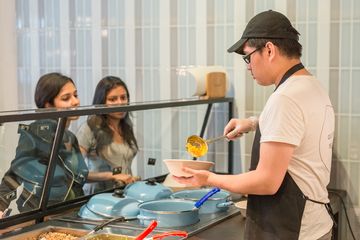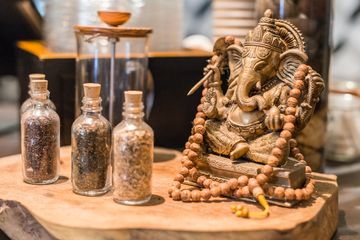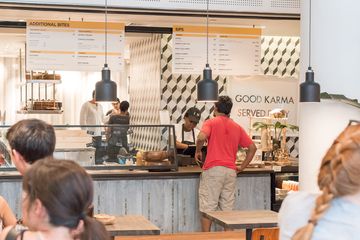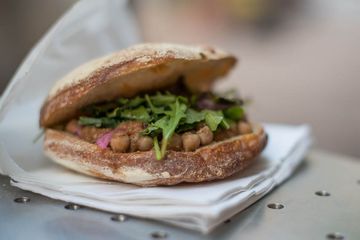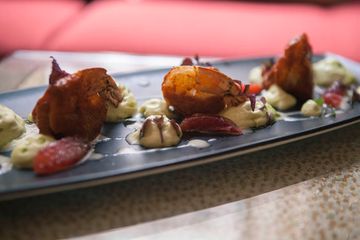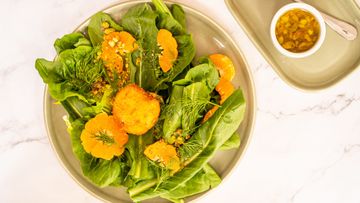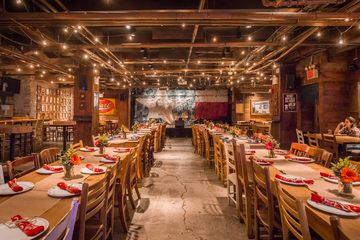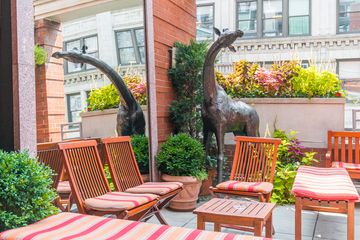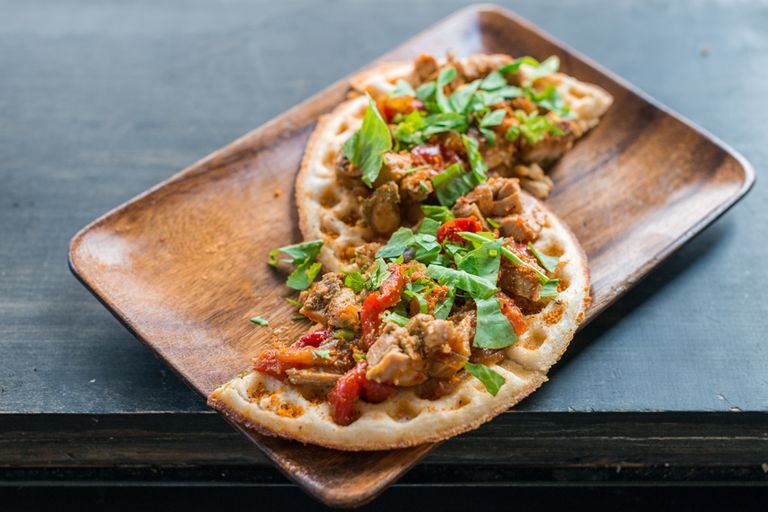
“I want to make Indian food accessible to New Yorkers,” Basu Ratnam announced to the Manhattan Sideways team as we were savoring a meal with him at his trendy, fast-casual restaurant. Inday's name derives from his goal: to make “India everyday.” Basu is one of the increasing number of people that our team has encountered on the side streets who have given up lucrative, fast-paced careers in finance to start small businesses close to their hearts.
For Basu, it began in 2013, when he was seated next to Phil Suarez, a restaurateur and partner of celeb chef Jean-Georges Vongerichten. Impressed by Basu’s pitch, Suarez signed on as an investor for Basu's new venture, allowing him to open Inday in 2015, which he eloquently stated, “was a way of reconnecting with my past and understanding my culture through food."
The cuisine at Inday reflects Basu’s own hybrid childhood. While he was growing up, his mother - who started living in the States after traveling here for grad school from the East Indian city of Calcutta - longed for authentic home food. Given that thirty years ago, in the 1980s, it was difficult to find exotic ingredients in supermarkets, his mother adapted to her environs, blending Indian recipes with the Californian emphasis on organic, local ingredients and cosmopolitan flavors. The result is not “authentic Indian,” but it stays true to the fundamental spirit of Indian food: healthy and nourishing, yet packed with flavor. It is a great alternative to today’s health food, which tends to be “about what’s not in your food,” according to Basu.
This East-West fusion and emphasis on healthy food is readily apparent in Inday’s seasonal menu. It offers colorful make-your-own bowls that combine a variety of meats and proteins with vegetables including cabbage, roasted corn and shaved broccoli, as well as traditional Indian items like mint and coconut chutneys, banana chips, and dal (lentils). Some of the more innovative menu options include a gluten free “dosa waffle” - a South Indian crepe - and the amazing “shredded cauliflower rice,” which is cheekily referred to as “Not Rice” on the menu. Basu told me the wonderful story behind the latter item, which is truly emblematic of the restaurant’s spirit: When his sister became "carb-conscious" as a young adult, his mother came up with “cauliflower biryani,” which substituted shredded cauliflower for rice. Basu says that they included it on the menu initially as a joke, but was pleasantly surprised to see it become their most popular item. Also worth noting is the “cardamom yoghurt” with berry compote, a heavenly amalgam of the Indian dessert “shrikhand” and fruit-on-the-bottom yogurt.
When asked if he was planning on expanding his business, perhaps developing a chain of restaurants, Basu responded - to my pleasant surprise - with a firm no. He is interested, instead, in engaging deeply with a particular kind of audience and forming a community around food. The Silicon Alley demographic that his NoMad location attracts is exactly the audience he wants: “culturally curious young people who are changing the world and are interested in the story behind their food.”
While we were speaking, I noticed stacks of old, dog-eared National Geographic magazines on a wooden shelf nearby; Basu pointed out that even the store’s signage is made out of pages of the magazine that he grew up reading. “I like to have it here as a reminder that there is life outside these concrete walls, and we should be sensitive to that.”
When I asked Basu if his mother is involved in the restaurant in any way, he told me that she occasionally stops by, tries everything, and gives the chefs valuable feedback. He then laughed as he remembered something Chef Jean-Georges Vongerichten said about Basu’s mother: “She will forget more about Indian food than most people even know.” With Inday, Basu is trying to remember as much as he can, in his own, New-Yorker way.
